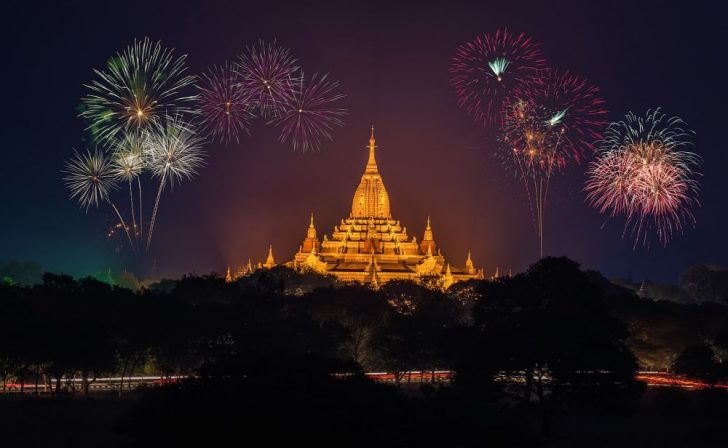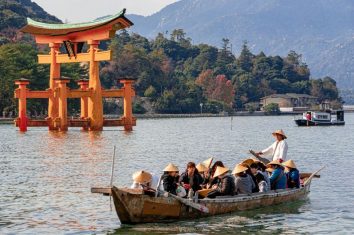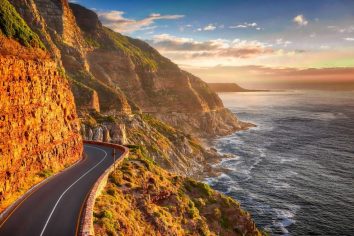Japan Islands: A Comprehensive Guide to Japan’s Diverse Archipelago

Introduction
Japan, with its rich history and breathtaking landscapes, is a country known for its enchanting islands. From the bustling streets of Tokyo to the tranquil shores of Okinawa, Japan’s islands offer a diverse range of experiences for travelers. In this article, we will delve into the world of Japan islands, providing an overview, exploring their types and popularity, analyzing quantitative measurements, discussing their differences, and delving into their historical advantages and disadvantages.
An Overview of Japan Islands

Japan is an archipelago consisting of over 6,800 islands, each with its unique charm and appeal. These islands span a vast area, totaling approximately 377,973 square kilometers, making Japan the tenth largest island country in the world. The four main islands are Honshu, Hokkaido, Kyushu, and Shikoku, forming the core of the country. Besides these, there are numerous smaller islands, some of which are uninhabited.
Types of Japan Islands
Japan islands can be categorized into several types, each offering its distinctive experiences. Honshu, the largest island, is home to bustling cities like Tokyo and Osaka, historical landmarks such as Kyoto, and natural wonders like Mount Fuji. Hokkaido, known for its scenic beauty and outdoor activities, attracts adventure enthusiasts and nature lovers. Kyushu stands out with its hot springs, volcanoes, and rich cultural heritage. Shikoku, on the other hand, beckons pilgrims and seekers of spiritual solace with its ancient temples and peaceful atmosphere. Other popular island groups include Okinawa, famous for its turquoise waters and vibrant coral reefs, and the Seto Inland Sea Islands, renowned for their picturesque landscapes and art installations.
Popular Japan Islands
Among the numerous islands in Japan, several stand out as popular tourist destinations. Okinawa, with its tropical climate and laid-back ambiance, is a favorite among beachgoers and water sports enthusiasts. Hokkaido, with its pristine wilderness and ski resorts, attracts both domestic and international travelers throughout the year. Miyajima, an island located near Hiroshima, is renowned for its iconic floating torii gate and serene atmosphere. Naoshima, one of the Seto Inland Sea Islands, is renowned for its contemporary art museums and installations, making it a must-visit for art lovers. These islands, along with many others, offer a wealth of attractions and memories waiting to be explored.
Quantitative Measurements of Japan Islands
When it comes to quantitative measurements, Japan’s islands boast impressive statistics. Mount Fuji, located on Honshu Island, stands at an awe-inspiring height of 3,776 meters, making it the tallest mountain in Japan. Additionally, Japan is surrounded by 29,751 kilometers of coastline, providing ample opportunities for scenic coastal drives and marine adventures. The country’s seismic activity is also a notable aspect, with numerous earthquake-prone areas due to its location along several tectonic plates.
Uncovering the Differences
Despite their shared Japanese culture and heritage, Japan’s islands exhibit distinct characteristics that set them apart. These differences can be observed in terms of climate, cuisine, dialects, and cultural traditions. For example, the northern islands of Hokkaido and Okinawa in the south experience varying climates, with Hokkaido witnessing snowy winters and Okinawa enjoying a subtropical climate. Similarly, each island boasts its culinary specialties, dialects, and festivals, providing a diverse tapestry of experiences for travelers to explore.
Historical Advantages and Disadvantages
Throughout history, Japan’s islands have played a crucial role in the country’s development. The advantages offered by islands include natural barriers that protect against invasions, abundant marine resources, and trade opportunities. However, the isolation posed by these islands also presented challenges, especially for communication, transportation, and economic development. Over time, advancements in technology and infrastructure have reduced these disadvantages, making the islands more accessible and interconnected.
In conclusion, Japan’s islands provide a fascinating tapestry of experiences for travelers. From the bustling cities of Honshu to the serene beaches of Okinawa, each island offers unique attractions and cultural nuances. Whether exploring historic landmarks, indulging in local cuisine, or immersing in nature’s wonders, Japan islands promise unforgettable journeys. So pack your bags, delve into Japan’s archipelago, and unravel the secrets of this captivating country.
– En video som visar de vackra landskapen och kulturella aspekterna av Japans öar.]
FAQ
How many islands are there in Japan?
What are some popular Japan islands for tourists?
Which Japan island is the largest?
Fler nyheter
Hotell Marstrandsön: boende mitt i Bohusläns skärgårdspuls
Introduction Japan, with its rich history and breathtaking landscapes, is a country known for its enchanting islands. From the bustling streets of Tokyo to the tranquil shores of Okinawa, Japan’s islands offer a diverse range of experiences for...
08 januari 2026
Studentresa med surfing: En drömsemester för studenter i Portugal
Introduction Japan, with its rich history and breathtaking landscapes, is a country known for its enchanting islands. From the bustling streets of Tokyo to the tranquil shores of Okinawa, Japan’s islands offer a diverse range of experiences for...
03 november 2025
Utforska fascinerande Japan: Resans mål för upptäckare
Introduction Japan, with its rich history and breathtaking landscapes, is a country known for its enchanting islands. From the bustling streets of Tokyo to the tranquil shores of Okinawa, Japan’s islands offer a diverse range of experiences for...
01 november 2025
Temaresor: Det bästa sättet att upptäcka världen på
Introduction Japan, with its rich history and breathtaking landscapes, is a country known for its enchanting islands. From the bustling streets of Tokyo to the tranquil shores of Okinawa, Japan’s islands offer a diverse range of experiences for...
31 oktober 2025











